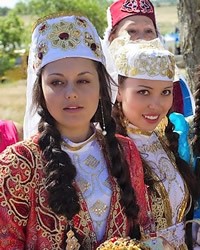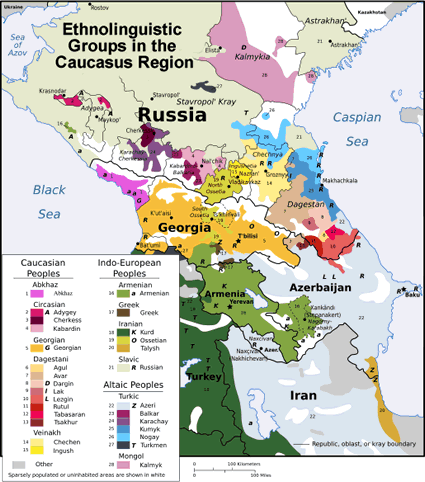Throughout history, Armenia has been a battlefield for many invaders and contending empires, and a bridge for many cultures and civilizations. During the past 2,700 years, Armenia has been conquered by the Persian Empire, Alexander the Great, the Roman Empire, the Byzantines, Arabs, Mongols, Tatars, Ottomans, Persians, and Russians. Armenian kingdoms, principalities, and even a short-lived empire (95-55 B.C.) managed to survive and thrive for some 1,700 years. Under various kings and princes, the Armenians developed a sophisticated culture, an original architecture, and their own alphabet.
The 1905 Russian revolution and the 1908 Young Turk revolution raised the hopes of the Armenians for reform, and an opportunity to build a homeland in historical Armenia. These hopes were dashed as the Ottoman and the Russian Empires fought each other during World War I. A dark hour of Armenian history is the Armenian genocide, which started on April 24, 1915. Some 1,750,000 Armenians were deported into Syria and Mesopotamia by the Ottoman authorities. Subject to famine, disease, and systematic massacres, most of them perished. This "ethnic cleansing" of the Armenians from their historical homeland led Raphael Lemkin, the father of the Genocide Treaty, to coin the new term "genocide" in the 1930s to describe the historical plight of the Assyrians and the Armenians as subjects of the first genocide of the 20th century. Armenia gained independence on September 23, 1991.
Today, there are several million Armenians worldwide. Significant numbers are located in Armenia and the United States of America. Major diaspora centers of the Middle East are Iran, Syria and Lebanon. Others are in European countries like Germany.
Most of Germany's Armenian population arrived during the 1915 Genocide. Others came to what was West Germany after WWII. Though they live in many German cities, Armenians are best represented in Cologne.
Germany allows immigrants with good education to come into their country. Armenians are among the world's best businessmen, and many have the capital to start anew. Some are suffering from the traumas of the war with Azerbaijan. Others have grandparents and great grandparents who fled there, but they themselves are integrated into German society.
In 301 AD, during the rule of King Dirtad III, Armenia became the world's first Christian nation. A Christian monk, commonly known as Krikor Lusavorich or St. Gregory the Illuminator, cured the king of a disease. After this event, King Dirtad III was baptized and accepted Christianity as Armenia's official state religion. Before this, two disciples had brought Christianity to Armenia, St. Thaddeus and St. Bartholomew. Today most Armenians in Germany are part of the Armenian Apostolic Church.
The traumatizing experience of being expelled from their homeland and the historic genocide made a deep impression on Armenians. Many have trouble forgiving the Turks after over 100 years. This impedes their spiritual lives.
Pray for healing for Armenians and for their ability to forgive those who have wronged them.
Pray for the Armenians in Germany to hold on to their Christian faith and to have a personal experience with Jesus Christ.
Pray that God would bring revelation of Christianity as a spiritual relationship rather than a call to nationalism.
Scripture Prayers for the Armenian in Germany.
https://en.wikipedia.org/wiki/Armenians_in_Germany
https://eap-csf.am/armenians-in-germany-seeking-new-life-and-opportunities/
https://asbarez.com/the-captivating-city-of-cologne-and-its-armenian-community/
| Profile Source: Joshua Project |













